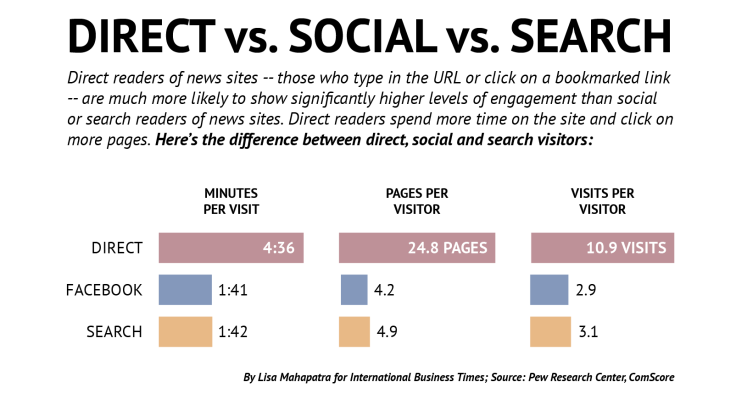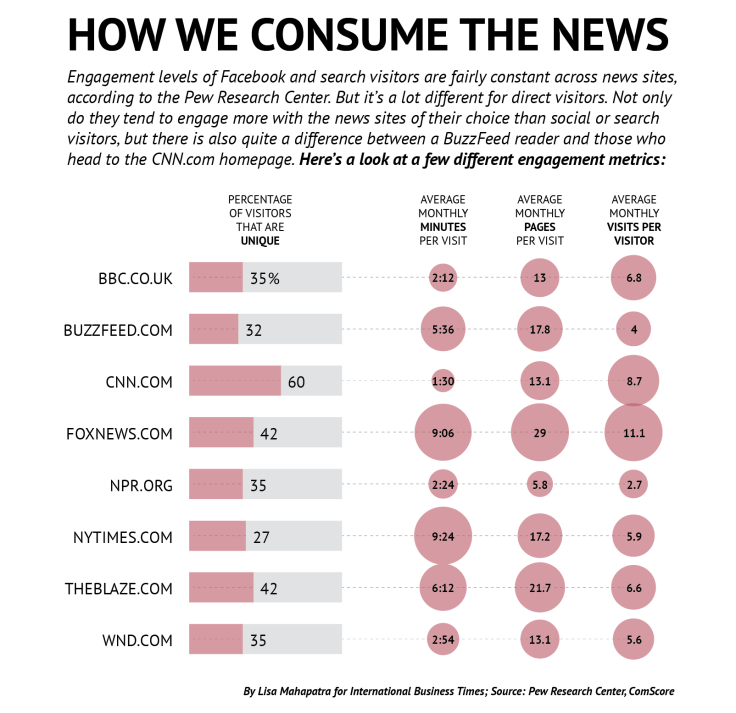Why Loyal Readers Are About Three Times More Valuable To News Sites Than Social Or Search Readers [CHARTS]

Readers of news sites who type in the URL or click on a bookmarked link tend to spend a lot more time on that site that those who came by the site via Facebook or search, according to a new study by the Pew Research Center.
The Pew study analyzed ComScore data for 26 of the most popular news websites and looked at how differently direct, social and search readers tended to behave.
Direct readers spent about three times as much time as social or search readers and clicked on five times as many pages and tend to visit three times more often.
This trend held true across all the sites surveyed, from Brietbart.com, which sees high social traffic, to ABCnews.com, which has a large search audience, said the study.
Here’s exactly how much more engaged direct readers are, when compared to social or search readers:

While it true that direct readers are more engaged with news sites than social or search readers, the amount of engagement varied quite a bit across different news sites, according to the study.
Loyal NYTimes.com readers tended to spend more than 9 minutes during each visit, while loyal CNN.com readers only spent a minute and half for each visit.
Foxnews.com readers tended to visit the site more often than NPR.org readers.
Here’s a chart that looks at how user engagement among direct readers for a select group of news sites:

© Copyright IBTimes 2025. All rights reserved.






















